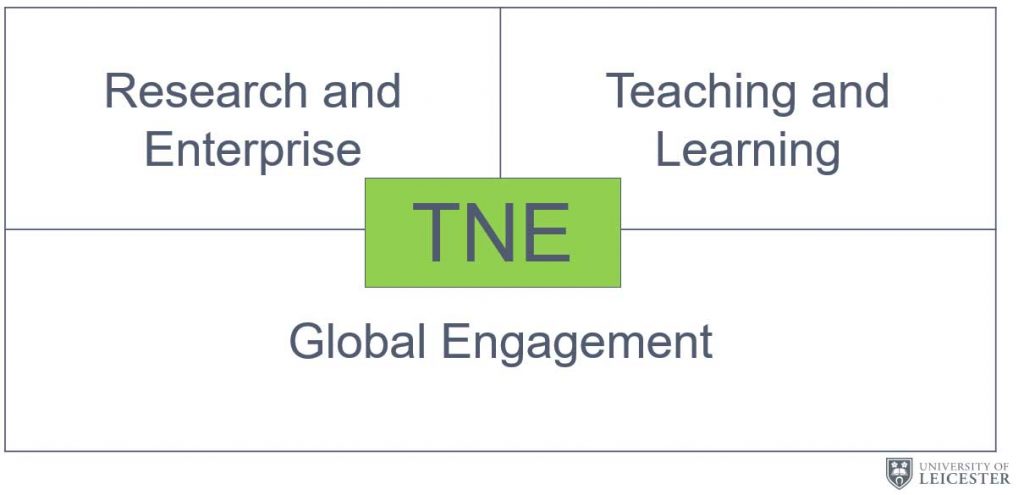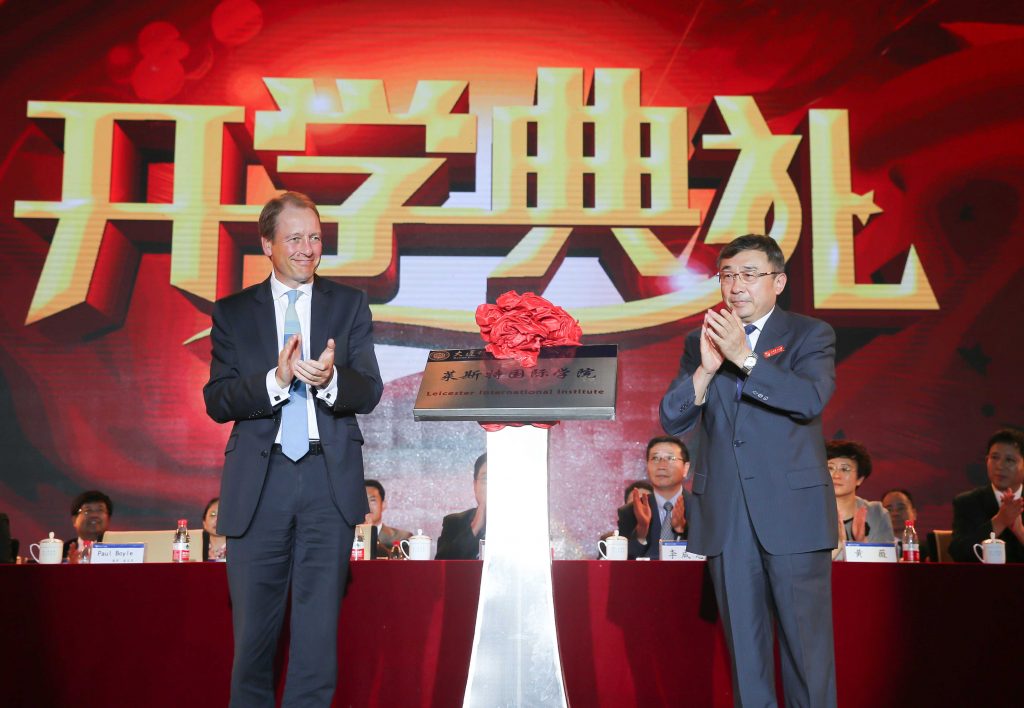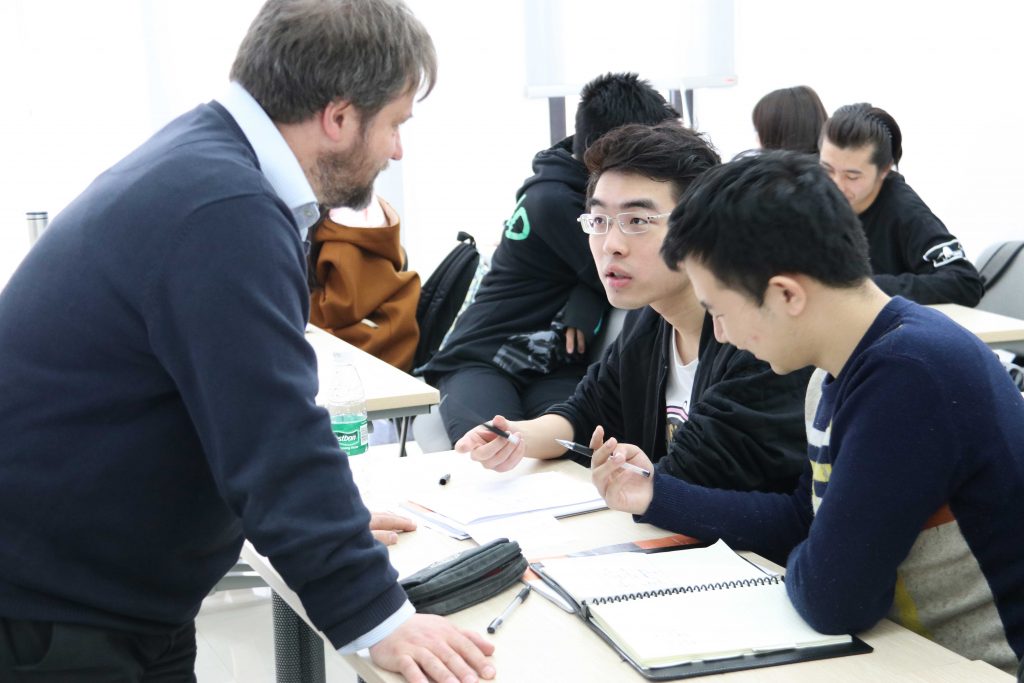
What is TNE?
Transnational education (TNE) includes a wide range of delivery methods with a common theme that part or all of the education is delivered in country other than the country in which the awarding institution is based. Universities UK has a very useful discussion of “What is UK HE TNE?” and publishes reports on the scale of UK TNE. The most recent report covers the 2015-16 period.
This broad definition includes online/distance delivery, local delivery partnerships and UK institutions having a physical presence in another country. TNE, increasingly involves partnership with local institutions, but this is not always the case, for example in many types of international campuses or study centres.
Many institutions in the UK are currently planning to grow their TNE activities as a way of diversifying their educational offer reaching a broader range of international students who would otherwise not be able to benefit from a undertaking a degree in the UK. There is also a growing drive to provide more UK students with the opportunity to undertake a period of study outside the UK as part of their degree.
What is not considered TNE?
The broad definition of TNE presented above does lead to the potential for debate about what types of international education are not considered TNE. The main exclusions are courses for international students that are delivered entirely in the UK by a UK institution. For example:
- Direct recruitment of international students
- Recruitment through agents
- Progression agreements (for example from an undergraduate course in a global partner to a taught post-graduate course in the UK)
The one area of ambiguity relates to articulation agreements with global HE partners. The traditional approach to this would be for students to undertake an initial period of study in their home institution, before transferring to a complementary course in the UK (or another country) where they complete the new programme and gain a degree certificate from that (UK) awarding institution. There is great variety in this type of agreement, with an increasing number taking more collaborative approaches that are compatible with the concept of TNE.
Building better TNE
During my period at the University of Leicester, I was involved in developing a strategic approach to promote future growth of TNE delivery. Most of the work was linked to TNE delivery in China, but there was also consideration of opportunities in other global regions.
The work in China was framed within the regulatory requirements of the UK (England) and those defined by the Chinese Ministry of Education. Examples from Leicester are described below.
I described the approach that I was developing at the University of Leicester at a public event in 2018. The core theme highlighted in my presentation was that TNE needs to be seen to contribute to the core activities of a University.

I consider that TNE is one way that a modern, global university makes the link between research, enterprise and education, which together contribute to the institution’s global engagement and impact.
When TNE delivered in partnership, it is important that both institutions benefit from and contribute to its delivery. For this reason the choice of partners, topics and modes of delivery are extremely important decisions that should be made jointly by partners.
Students should be at the heart of any TNE programme and this is highlighted in my 2018 presentation, which adopted themes that echo the current regulatory framework for TNE in the United Kingdom. The approach highlighted in the presentation highlighted five themes:
- Ensuring quality and relevance;
- Enhancing student experience and employability;
(For international and UK students) - Delivering value for:
– students and their families
– the University and its partners
– for society; - Widening participation;
- Diversification:
– From UK focused to global
– location of partners and delivery
– modes of delivery.
The presentation then considers how this might be implemented using Leicester’s Joint Educational Institute (JEI) with the Dalian University of Technology as an example.
TNE examples from the University of Leicester
During my time as D-PVC Global Engagement at the University of Leicester I was part of the leadership team supporting the growth of the University’s TNE activities in China. Leicester had three main TNE initiatives:
- A Joint Educational Institute with the Dalian University of Technology, with three courses covering the fields of engineering, chemistry and mathematics
- A Joint Educational Programme (Engineering), with the China Three Gorges University in Yichang City in Hubei Province.
- A Joint Education Programme with the Chongqing Medical University that is planned to have its first intake of students in September 2020.
The largest and most successful programme at the time was the JEI with Dalian University of Technology. The Dalian Leicester Institute (DLI) had its first intake of students in 2017 with these set to graduate in June 2021. Numbers will grow up to an annual intake of 300 students over the three existing programmes.

The work with Dalian, focused on options to build on the successful launch of the three undergraduate programmes. A collaborative process lead to a shared agenda for future developments that were selected to enhance the value of the initiative to students and staff as well as to the institutions and their global reputations. The following fourpriorities were agreed for the next phase of development of the partnership:
- Enhanced student and staff mobility, including specifically growth of mobility from the UK to China;
- Growth of joint research and innovation activities;
- Promoting collaborative PhD initiatives, including potentially a joint award scheme;
- Building links to municipal and regional governments and local businesses.

A set of similar discussions took place with the Chongqing Medical University (CQMU) building on the experience from Dalian. In Chonginq, CQMU colleagues added an additional objective of training their teaching staff in methods used for medical education in the UK.
Finally for all of Leicester’s TNE programmes, there was work to enhance the long-term sustainability of the initiatives. In addition to considering the educational content and learning outcomes, there was work to review the implementation of the programmes to ensure that the programmes could demonstrate long-term viability, resilience and sustainability.
How is TNE governed in England?
Higher Education in the United Kingdom is going through a period of significant change and is administered differently in each of the relevant administrations. In the English system oversight is provided through the responsibilities of the Office For Students (OFS) and the Quality Assurance Agency for Higher Education.
The relevant regulatory frameworks are still in development and further information will be provided here as available. Universities UK have produced a useful summary of their thoughts on what would be desirable in the new framework.
During the transition a number of useful references are available:
- The regulatory framework for higher education in England. (Office for Students)
- Transnational education: Global location, local innovation. A report produced for UUKi. (Warwick Economics and Development)
- UK quality code, advice and guidance: Partnerships. (Quality Assurance Agency, current documentation)
- UK quality code for higher education. Part B: Assuring and enhancing academic quality. Chapter B10: Managing higher education provision with others. Quality Assurance Agency. Previous version of QAA documentation, but still an very useful reference on practical considerations related to TNE)